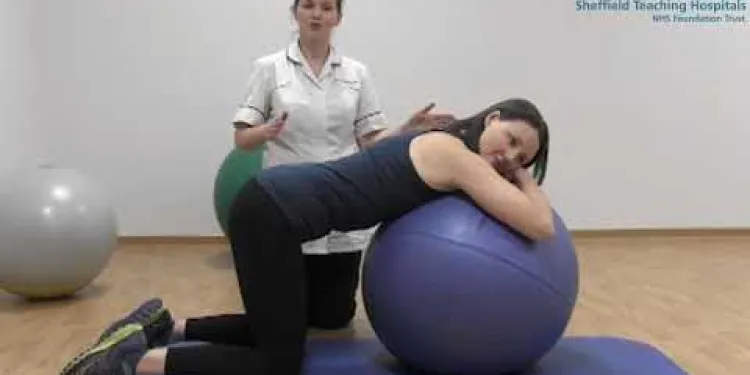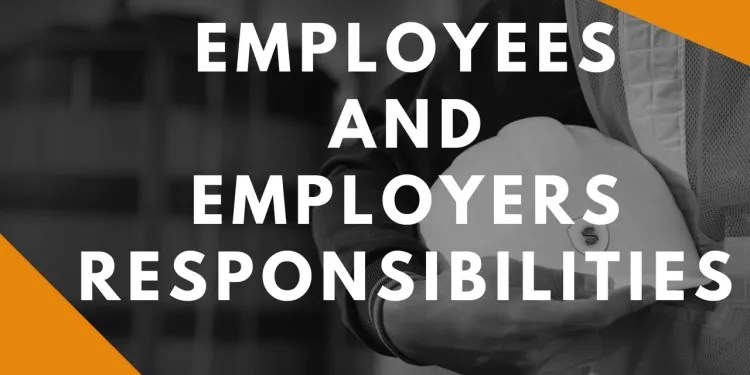
Find Help
More Items From Ergsy search
-

How can I ensure safety during pregnancy exercises?
Relevance: 100%
-

What exercises can I do during pregnancy?
Relevance: 85%
-

Can I do abdominal exercises during pregnancy?
Relevance: 85%
-

Are there any exercises to avoid during pregnancy?
Relevance: 81%
-

How often should I exercise during pregnancy?
Relevance: 79%
-

How does exercise benefit pregnancy?
Relevance: 78%
-

Can I take exercise classes during pregnancy?
Relevance: 77%
-

What should I wear for exercising during pregnancy?
Relevance: 76%
-

Do I need to consult a doctor before exercising during pregnancy?
Relevance: 76%
-

Is swimming a good exercise during pregnancy?
Relevance: 75%
-

Where can individuals find reliable information on the safety of medications during pregnancy?
Relevance: 70%
-

Mat and gym ball exercises with pregnancy related Pelvic Girdle Pain
Relevance: 63%
-

Can I do high-impact exercises while pregnant?
Relevance: 62%
-

Is cycling safe during pregnancy?
Relevance: 61%
-

Can exercise help prevent gestational diabetes?
Relevance: 56%
-

Can I continue running during pregnancy?
Relevance: 55%
-

Can exercises help with labor preparation?
Relevance: 55%
-

Can lifestyle changes help manage pain and fever during pregnancy?
Relevance: 54%
-

How can the risks and benefits of medications during pregnancy be assessed?
Relevance: 52%
-

Gestational Diabetes during pregnancy
Relevance: 52%
-

How soon can a pregnancy test detect pregnancy?
Relevance: 50%
-

What if my pregnancy test is positive?
Relevance: 50%
-

What is a pregnancy test?
Relevance: 49%
-

Should I avoid lying on my back during exercise?
Relevance: 48%
-

Health and safety responsibilities
Relevance: 47%
-

What should I do if I start bleeding during early pregnancy? | NHS
Relevance: 47%
-

How can I modify my yoga practice during pregnancy?
Relevance: 46%
-

Can a pregnancy test expire?
Relevance: 46%
-

HIV and pregnancy | NHS
Relevance: 46%
-

Pre eclampsia - NHS Maternity Safety Information
Relevance: 46%
-

Nutrition for Pregnancy: What to Eat
Relevance: 46%
-

What are the different types of pregnancy tests?
Relevance: 45%
-

How does a pregnancy test work?
Relevance: 45%
-

Can a pregnancy test detect a miscarriage?
Relevance: 45%
-

When should I take a pregnancy test?
Relevance: 45%
-

Will I be able to engage in physical exercise?
Relevance: 45%
-

Can stress affect a pregnancy test result?
Relevance: 44%
-

Can postnatal depression affect subsequent pregnancies?
Relevance: 44%
-

Can medications affect pregnancy test results?
Relevance: 43%
-

Can Zika virus affect pregnancy?
Relevance: 43%
How to Ensure Safety During Pregnancy Exercises
Exercising during pregnancy is highly beneficial for both the mother and the baby, promoting overall health and easing the discomforts of pregnancy. However, safety is paramount. Following a few guidelines can help ensure that your exercise routine is safe and effective.
Consult with a Healthcare Professional
Before starting any exercise programme during pregnancy, it's crucial to consult with your GP or midwife. They can provide personalized advice based on your medical history and any potential pregnancy complications. This will ensure that you choose activities that are appropriate and safe for your specific circumstances.
Choose the Right Exercises
Opt for low-impact exercises that minimise strain on your body. Activities such as walking, swimming, prenatal yoga, and stationary cycling are often recommended. These exercises offer cardiovascular benefits without excessive stress on your joints. Avoid high-impact sports and activities with a high risk of falling or abdominal injury.
Stay Hydrated and Nourished
Pregnant women should drink plenty of water before, during, and after exercise to stay hydrated. Dehydration can lead to complications such as dizziness or even preterm labor. Similarly, maintaining a balanced diet rich in nutrients will provide the energy levels necessary for safe exercise.
Listen to Your Body
Your body will provide signals if you are overexerting yourself. Be attentive to feelings of dizziness, shortness of breath, or any form of discomfort and stop exercising if these occur. Modifying your activity level as your pregnancy progresses and responding promptly to discomfort are crucial to safety.
Wear Appropriate Clothing
It's important to wear comfortable, loose-fitting clothes that allow for movement and proper ventilation. Supportive footwear is essential to provide stability and shock absorption. A well-fitting sports bra is also vital to ensure adequate support as your body changes.
Practice Proper Technique
Ensuring the correct posture and technique is critical to preventing injury. This is particularly important as your centre of gravity changes during pregnancy. Consider working with a qualified prenatal exercise instructor who can guide you through exercises safely.
Monitor Intensity Levels
It is advisable to maintain moderate intensity in your workouts. The 'talk test' is a simple way to monitor this; you should be able to hold a conversation during exercise. Exercising to the point of exhaustion is discouraged.
Be Mindful of Environmental Conditions
Exercise in a comfortable environment, avoiding extreme heat, humidity, or cold. Indoor exercise is recommended when the weather is unsuitable, and a climate-controlled environment can prevent overheating.
Conclusion
By following these guidelines, pregnant women can engage in safe and beneficial exercise routines. Always prioritise safety and make adjustments as needed, ensuring a healthy and enjoyable pregnancy journey.
How to Stay Safe When Exercising During Pregnancy
It is good for both mums and babies when mums exercise during pregnancy. It helps mums feel healthy and more comfortable. But being safe is very important. You can follow some simple rules to make sure your exercises are safe.
Talk to Your Doctor
Before starting to exercise, talk to your doctor or midwife. They know your health best and can give you advice. This can help you pick exercises that are safe for you and your baby.
Pick the Right Exercises
Choose exercises that are gentle on your body. Walking, swimming, special yoga for pregnant women, and cycling on a stationary bike are good choices. These exercises make your heart strong without hurting your joints. Do not do sports that make you fall or hurt your tummy.
Drink Plenty of Water
Drink lots of water before, during, and after you exercise. Water stops you from getting dizzy or having early contractions. Also, eat healthy foods to have enough energy for exercise.
Listen to Your Body
Your body will tell you if you are doing too much. If you feel dizzy, short of breath, or uncomfortable, stop exercising. As your baby grows, you might need to change how you exercise.
Wear the Right Clothes
Wear comfy clothes that are not too tight. They should let air in to keep you cool. Wear good shoes that keep you steady. A supportive sports bra is important because your body is changing.
Use Good Posture
Make sure you use the right way to move during exercises. This keeps you from getting hurt, especially since your balance changes when pregnant. A teacher who knows about exercise for pregnant women can help you.
Keep Your Exercise Light
Do exercises that are not too hard. You can use the 'talk test' - you should still be able to talk while exercising. Do not push yourself too hard.
Exercise in the Right Place
Exercise in a place where the temperature is comfortable. Do not exercise in very hot, cold, or humid places. Inside is best when the weather is bad, to prevent getting too hot.
Conclusion
When you follow these rules, you can exercise safely while pregnant. Always think about safety and change things if needed. This will help you have a healthy and happy pregnancy.
Frequently Asked Questions
What types of exercises are safe during pregnancy?
Walking, swimming, stationary cycling, and pregnancy yoga are generally safe forms of exercise during pregnancy.
How often should I exercise while pregnant?
Most guidelines suggest aiming for at least 150 minutes of moderate-intensity exercise each week, ideally spread throughout the week.
Is it safe to start exercising during pregnancy if I wasn't active before?
Yes, but it's important to start slowly and build up gradually, focusing on low-impact exercises. Consult with your healthcare provider first.
What precautions should I take when exercising during pregnancy?
Stay hydrated, avoid overheating, listen to your body, and avoid activities with a risk of falling or abdominal trauma.
How can I monitor my exercise intensity during pregnancy?
You can use the 'talk test' as a guide; you should be able to hold a conversation during exercise without too much difficulty.
Are there any exercises I should avoid during pregnancy?
Avoid contact sports, activities with a high risk of falling, and exercises that involve lying flat on your back after the first trimester.
Can I continue strength training while pregnant?
Yes, as long as you use light to moderate weights and focus on proper form. Avoid heavy lifting and exercises that strain the abdomen.
Is it safe to exercise in hot weather during pregnancy?
It's best to avoid exercising in extreme heat. Ensure you stay cool, hydrated, and opt for indoor activities if necessary.
What should I do if I feel uncomfortable or have pain during exercise?
Stop exercising immediately and rest. If discomfort or pain persists, consult with your healthcare provider.
How can I tell if I'm overheated during exercise?
Signs of overheating include excessive sweating, feeling dizzy, nauseous, or faint. It's important to stop, rest, and hydrate if this occurs.
Why is staying hydrated important during pregnancy exercises?
Staying hydrated helps maintain your body temperature, supports increased blood volume, and prevents dehydration-related complications.
Is it normal to have shortness of breath during pregnancy exercises?
Mild shortness of breath can be normal, but if it's severe or persistent, you should stop exercising and consult with your healthcare provider.
Can exercise cause miscarriage?
Moderate exercise is generally considered safe and does not increase miscarriage risk. Always consult a healthcare provider for personal guidance.
What should I wear for exercise during pregnancy?
Wear loose, comfortable clothing, a supportive bra, and proper athletic shoes to help stabilize your body.
Is it safe to perform abdominal exercises during pregnancy?
Modified abdominal exercises can be safe but avoid lying on your back after the first trimester and exercises with excessive twisting.
Can I perform high-intensity interval training (HIIT) during pregnancy?
HIIT is not recommended for everyone during pregnancy. It should be done only if you are very experienced and your healthcare provider agrees.
How can I ensure my balance during pregnancy exercises?
Focus on exercises with a stable base, use support when needed, and avoid activities that require quick direction changes.
Should I modify my exercise routine as my pregnancy progresses?
Yes, as your pregnancy progresses, you might need to adapt the intensity, duration, and type of exercises to suit your body and comfort levels.
How important is a warm-up and cool-down when exercising during pregnancy?
A warm-up prepares your body for exercise, reducing the risk of injury, while a cool-down helps your body recover and return to a resting state.
What are the warning signs to stop exercising during pregnancy?
Stop exercising if you experience chest pain, bleeding, dizziness, persistent contractions, or any severe symptoms and consult your healthcare provider.
What exercises are safe when you are pregnant?
When you are going to have a baby, it is good to do some exercises. But you need to be careful and choose safe ones.
Here are some safe exercises:
- Walking: It is easy and keeps you fit.
- Swimming: It is gentle on your body and feels nice.
- Prenatal yoga: It helps you stretch and relax.
- Stretching: It keeps your muscles loose and strong.
Always talk to your doctor before starting exercises. Use a friend or family member for help. They can make sure you do it right. You can also watch simple video guides for more help.
It is usually safe to do walking, swimming, riding a stationary bike, and pregnancy yoga when you are pregnant.
How much should I exercise when I am pregnant?
Try to do 150 minutes of exercise each week. This means moving your body enough to get a bit out of breath. It's best to spread the exercise over the whole week.
Can I start exercising when I am pregnant if I did not exercise before?
Yes, you can start, but go slow. Do easy exercises first and do more as you get strong. Talk to your doctor before you start.
What should I do to stay safe when I exercise while pregnant?
Here are some tips to help you exercise safely when you're pregnant:
- Talk to your doctor before starting any exercise. They can tell you what's safe for you.
- Choose exercises that are gentle, like walking or swimming.
- Drink plenty of water before, during, and after exercise.
- Listen to your body. If you feel tired or in pain, stop and rest.
- Wear comfortable clothes and supportive shoes.
- If you're unsure, ask a friend or join a class for pregnant people.
Remember, it's important to go slow and take care of yourself and your baby. You can also use a big exercise ball or watch videos for exercises made just for pregnancy.
Drink lots of water. Stay cool. Pay attention to how you feel. Don't do things where you might fall or hurt your belly.
How can I check how hard I am exercising while pregnant?
When you are pregnant and exercising, it is important to make sure you are not working too hard. Here are some tips to help you:
- Listen to your body: If you feel too tired, slow down or take a break.
- Talk Test: While you exercise, you should be able to talk. If you can talk but not sing, you are doing fine.
- Use a heart rate monitor: This tool can help you check how fast your heart is beating.
- Ask your doctor: Check with your doctor about safe exercises for you.
Exercise tools like heart rate monitors can help you stay safe while exercising.
You can try the 'talk test' to help you. When you are exercising, you should be able to talk to someone without it being too hard.
Are there exercises I should not do when I am pregnant?
Some exercises are not safe if you are pregnant. You should not do things like:
- Heavy lifting.
- Contact sports like football or rugby.
- Exercise that makes you lie flat on your back.
Always talk to your doctor before trying new exercises when you are pregnant. They can help keep you safe.
Do not play sports where you might get hurt by falling. Do not do sports where you lie flat on your back after the first three months of pregnancy.
Can I keep doing strength exercises when I am pregnant?
Yes, you can keep doing exercises to stay strong when you are pregnant. But you need to be careful and do it safely.
Here are some tips to help:
- Talk to your doctor before you start.
- Go slow and be gentle with your body.
- Listen to your body. If something hurts, stop.
- Ask a trainer for help if you need it.
If you need help reading, you can:
- Ask someone to read with you.
- Use audiobooks or videos to learn.
- Use apps that read text out loud.
Yes, you can lift weights. Use light or medium weights. Make sure to do the exercises the right way. Do not lift heavy weights. Do not do exercises that hurt your tummy.
Can I safely exercise when it is hot and I am pregnant?
It is important to stay cool and safe when exercising in hot weather during pregnancy. Here are some tips:
- Drink plenty of water.
- Wear loose, light clothing.
- Exercise in the shade or indoors.
- Take breaks and rest when needed.
Talk to your doctor before starting any exercise routine.
Try not to exercise when it is very hot. Make sure you keep cool and drink lots of water. If it's too hot, exercise indoors where it's cooler.
What should I do if I feel bad or hurt when I exercise?
If you feel bad or hurt when you exercise, stop and take a break. Tell an adult or a coach if you still feel bad. You can use ice on sore spots to help feel better. Remember to stretch before and after exercising. Stretching helps your body get ready and stay safe. If the hurt doesn’t go away, it’s important to talk to a doctor. They can help you feel better. Always listen to your body and be careful when you exercise.
Stop exercising right away and take a break. If you still feel discomfort or pain, talk to your doctor.
How do I know if I'm too hot when I exercise?
Here are some signs that you might be too hot:
- You feel dizzy or light-headed.
- Your skin feels very hot or it looks red.
- You are sweating a lot more than usual.
- Your heart is beating really fast.
- You feel sick or want to throw up.
If you notice these signs, stop exercising and rest. Drink some water and move to a cool place.
It's important to listen to your body and take breaks when you need to.
If you feel too hot, your body might give you some signs. You might sweat a lot, feel dizzy, feel sick to your stomach, or feel like you might faint. If this happens, it is important to stop what you are doing. Take a break and drink some water.
Why is drinking water important when you exercise and are pregnant?
When you are pregnant and you exercise, it is very important to drink enough water. Water helps keep you and your baby healthy.
Drinking water does these things:
- Makes sure your body does not get too hot.
- Helps your muscles work well.
- Stops you from feeling dizzy or getting headaches.
Remember to sip water before, during, and after exercise.
If you need help remembering, set a timer or use a phone app as a reminder to drink water.
Drinking plenty of water helps keep your body cool, makes sure you have enough blood, and stops you from getting sick because you don't have enough water.
Is it okay to feel out of breath when you exercise while pregnant?
Here is what you can do:
- Take breaks when you need.
- Drink water often.
- Ask your doctor for advice.
It's okay to feel a little out of breath when you exercise. But if it's hard to breathe or it doesn't go away, stop exercising. Talk to your doctor to make sure you're okay.
Can exercise make you lose a baby?
Some people worry that exercise can make them lose a baby when they are pregnant. It is important to check with a doctor before starting any exercise.
Many doctors say gentle exercise is good for most pregnant women. But every person is different. It's good to ask what is safe for you.
If you have questions, talk to your doctor. You can also ask someone you trust to help you understand.
Doing some exercise is usually safe for most people. It does not make having a miscarriage more likely. It is always a good idea to talk to a doctor to get advice just for you.
What Clothes Should I Wear When Exercising During Pregnancy?
When you are pregnant and want to exercise, wear clothes that feel comfy and stretchy.
- Choose a soft t-shirt or top that is not tight.
- Wear pants or shorts that stretch. Make sure they do not squeeze your tummy.
- Pick comfy shoes that give your feet support.
Remember to drink water and take breaks when you need to. If you need help, ask a friend or family member to join you.
Wear clothes that are loose and comfy. Put on a good bra for support. Wear the right shoes for sports to keep your body steady.
Can I do belly exercises when I am pregnant?
It is important to be careful when you are pregnant.
Here are some tips:
- Ask your doctor if it is okay to exercise.
- Go slowly and do not push too hard.
- Stop if you feel pain or feel strange.
It might help to have someone show you safe exercises.
It's okay to do gentle exercises for your tummy, but do not lie on your back after the first three months. Also, try not to twist your body too much.
Can I do hard exercise during pregnancy?
It is important to stay safe when you are going to have a baby. Before doing hard exercise, talk to a doctor. They can help you know what is safe.
If you do exercise, listen to your body. If something feels wrong or hurts, stop and rest.
You can also try gentle exercises like walking or swimming. These can be safe and good for you and the baby.
Remember, everyone is different. What is safe for one person might not be safe for another. Always ask a doctor if you are unsure.
HIIT is not for everyone when you are pregnant. You should do it only if you have done it a lot before and your doctor says it is okay.
How can I keep my balance when exercising during pregnancy?
Do exercises on flat ground. Use something to help you if you need it. Don't do activities where you have to turn quickly.
Do I need to change my exercise as my pregnancy goes on?
If you are pregnant, it is good to exercise. But as your belly grows, you might need to change your exercises a little bit.
Here are some simple tips to help you:
- Ask your doctor what exercises are safe for you.
- Do exercises that are gentle and make you feel good.
- Stop if you feel pain or get tired.
- Take breaks and drink water.
You can also use pictures or videos to see how to do the exercises. They can be very helpful!
Yes, as your baby grows, you might need to change how hard, how long, and what kind of exercises you do to feel good and stay safe.
Why is it important to warm up and cool down when you exercise during pregnancy?
When you exercise, it is good to do a warm-up before you start. This helps your body get ready. It can make exercise safer and more fun. A warm-up can be as simple as a slow walk or gentle stretches.
After you finish exercising, a cool-down is also helpful. It helps your body relax and feel better. A cool-down can be just a few minutes of slow walking or easy movements.
Warm-ups and cool-downs can keep both you and your baby safe and healthy. You can use music or a timer to help you. Ask a friend to join you for support!
A warm-up is like getting your body ready to play, so you don't get hurt. A cool-down helps your body feel calm and go back to normal after playing. You can try stretching or gentle movements for both.
When should you stop exercising if you are pregnant?
If you feel chest pain, bleeding, dizziness, strong contractions, or anything that feels very bad, stop exercising. Talk to your doctor or nurse.
Useful Links
Have you found an error, or do you have a link or some information you would like to share? Please let us know using the form below.
-->
This website offers general information and is not a substitute for professional advice.
Always seek guidance from qualified professionals.
If you have any medical concerns or need urgent help, contact a healthcare professional or emergency services immediately.
Some of this content was generated with AI assistance. We’ve done our best to keep it accurate, helpful, and human-friendly.
- Ergsy carfully checks the information in the videos we provide here.
- Videos shown by Youtube after a video has completed, have NOT been reviewed by ERGSY.
- To view, click the arrow in centre of video.
- Most of the videos you find here will have subtitles and/or closed captions available.
- You may need to turn these on, and choose your preferred language.
- Go to the video you'd like to watch.
- If closed captions (CC) are available, settings will be visible on the bottom right of the video player.
- To turn on Captions, click settings .
- To turn off Captions, click settings again.
More Items From Ergsy search
-

How can I ensure safety during pregnancy exercises?
Relevance: 100%
-

What exercises can I do during pregnancy?
Relevance: 85%
-

Can I do abdominal exercises during pregnancy?
Relevance: 85%
-

Are there any exercises to avoid during pregnancy?
Relevance: 81%
-

How often should I exercise during pregnancy?
Relevance: 79%
-

How does exercise benefit pregnancy?
Relevance: 78%
-

Can I take exercise classes during pregnancy?
Relevance: 77%
-

What should I wear for exercising during pregnancy?
Relevance: 76%
-

Do I need to consult a doctor before exercising during pregnancy?
Relevance: 76%
-

Is swimming a good exercise during pregnancy?
Relevance: 75%
-

Where can individuals find reliable information on the safety of medications during pregnancy?
Relevance: 70%
-

Mat and gym ball exercises with pregnancy related Pelvic Girdle Pain
Relevance: 63%
-

Can I do high-impact exercises while pregnant?
Relevance: 62%
-

Is cycling safe during pregnancy?
Relevance: 61%
-

Can exercise help prevent gestational diabetes?
Relevance: 56%
-

Can I continue running during pregnancy?
Relevance: 55%
-

Can exercises help with labor preparation?
Relevance: 55%
-

Can lifestyle changes help manage pain and fever during pregnancy?
Relevance: 54%
-

How can the risks and benefits of medications during pregnancy be assessed?
Relevance: 52%
-

Gestational Diabetes during pregnancy
Relevance: 52%
-

How soon can a pregnancy test detect pregnancy?
Relevance: 50%
-

What if my pregnancy test is positive?
Relevance: 50%
-

What is a pregnancy test?
Relevance: 49%
-

Should I avoid lying on my back during exercise?
Relevance: 48%
-

Health and safety responsibilities
Relevance: 47%
-

What should I do if I start bleeding during early pregnancy? | NHS
Relevance: 47%
-

How can I modify my yoga practice during pregnancy?
Relevance: 46%
-

Can a pregnancy test expire?
Relevance: 46%
-

HIV and pregnancy | NHS
Relevance: 46%
-

Pre eclampsia - NHS Maternity Safety Information
Relevance: 46%
-

Nutrition for Pregnancy: What to Eat
Relevance: 46%
-

What are the different types of pregnancy tests?
Relevance: 45%
-

How does a pregnancy test work?
Relevance: 45%
-

Can a pregnancy test detect a miscarriage?
Relevance: 45%
-

When should I take a pregnancy test?
Relevance: 45%
-

Will I be able to engage in physical exercise?
Relevance: 45%
-

Can stress affect a pregnancy test result?
Relevance: 44%
-

Can postnatal depression affect subsequent pregnancies?
Relevance: 44%
-

Can medications affect pregnancy test results?
Relevance: 43%
-

Can Zika virus affect pregnancy?
Relevance: 43%


